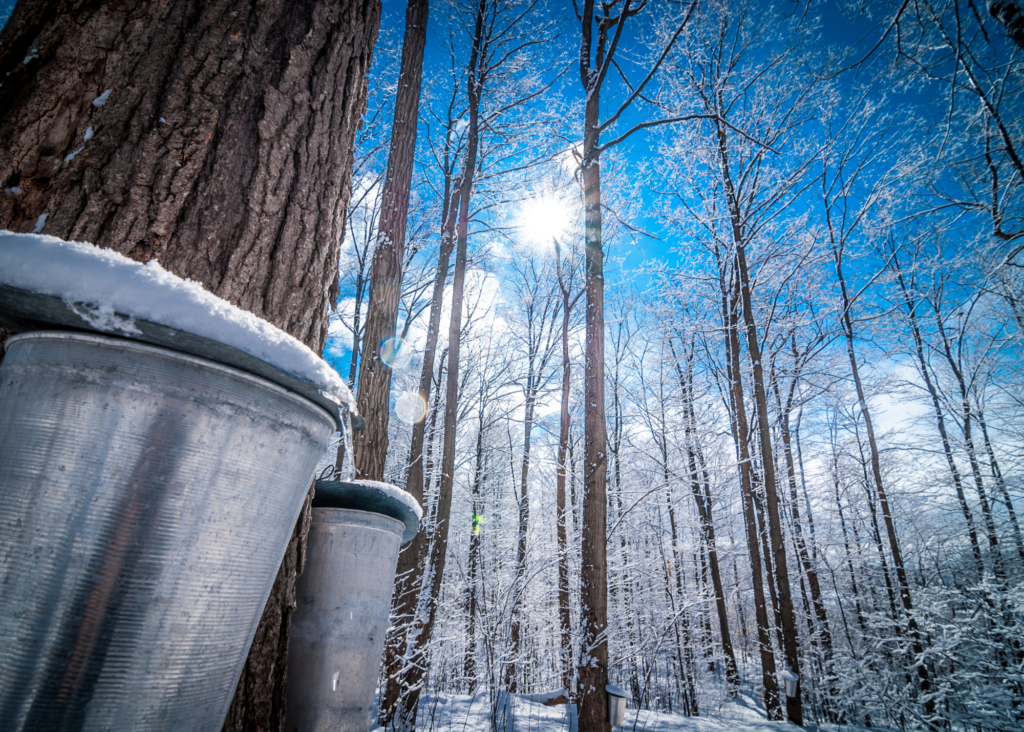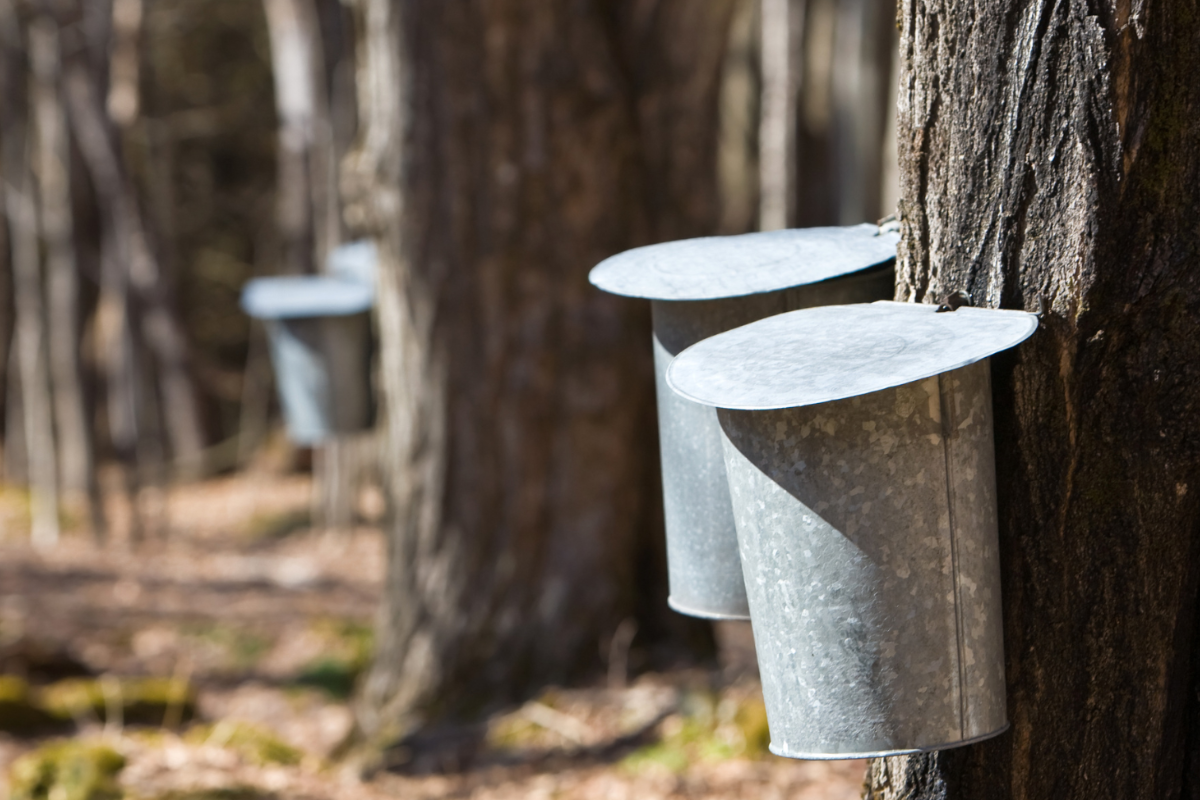The following article was published in Orillia Matters on April 3, 2025
Thirty years ago, tired of 80 hour work weeks, Peter Lorriman moved his young family from London, Ontario to a sugar bush in Simcoe County. Peter laughs and says he now works 120 hours a week. Though he and Windlee Farms make award winning maple syrup, Peter is worried.
Last year, he and his wife Anne tapped on Family Day – the earliest ever. They used to tap on St. Patrick’s Day. Once, driving his tractor from the sugar bush to his barn, the snow was so bad he got lost in his own field. Just before Covid, he realized he doesn’t haul sap in snowstorms any more. Our weather has changed.
Peter uses a vacuum to bring the sap in tubing from the tree. They used to turn it off at night, as it was too cold for the sap to flow. But now the vacuum runs all night. He’s concerned warmer temperatures don’t allow trees long enough dormancy. Five years ago, worried for the sugar maples, he reduced the number of taps on each tree from two to one. He knows many others doing the same. He now taps the north side of the bush rather than the south because it doesn’t warm up as fast.
Last month, I looked into what property insurance as an industry is doing abut climate change. Now, I wonder, is there organized environmental effort from the maple syrup industry?

Ontario has a lot of syrup producers, but nowhere near as many as Québec. We sell four percent of Canada’s maple syrup compared to Québec’s ninety. This vast difference is apparent in the provincial organizations. The Ontario Maple Syrup Producers Association is run by (aging) volunteers coordinated by one part time staff member. In contrast, the Québec equivalent, Producteurs et Productrices Acéricoles du Québec (PPAQ), has sixty full time employees. This allows the PPAQ to focus on preservation of forests in a way that Ontario can currently only dream of achieving.
The first line on the PPAQ website is ‘We are guardians of the forest’. The clearest explanation I’ve ever seen of forest benefits is on their homepage via a professionally produced two minute video.
Pardon me while I wax poetic, again, on the myriad of things forests accomplish simply by remaining vertical; carbon storage, temperature control, filtration of pollutants from air and water, erosion control, mitigation of disease and pests, pollination, protection of biodiversity, habitat provision and flood control. Wetlands do all these things too, but because they don’t make syrup we’re not talking about them today.
Since 2012, the PPAQ has guided their producer-members to greener practices – evaporation of sap has by far the biggest carbon impact. They set greenhouse gas reduction targets for both 2023 and 2030 and are encouraging and monitoring those who switch to electricity for evaporation.
The PPAQ recognizes forest health is primary to the industry. This column has looked at the impact of climate change on both maple syrup and property insurance, and both industries are investing heavily to study solutions. Both push for natural areas to be protected as a strategy. Is this the total solution? No. Switching to renewable resources would be. Maybe we’ll get there one day. Right now, the least expensive and least labour intensive option is to preserve forests and wetlands.
Canada and 195 other countries set a target to protect 30% of the planet’s land and oceans by 2030. Quietly, on Division Road West in Severn, you have an organization backed by hundreds of volunteers and even more supporters, working every day to protect as much local environmentally sensitive land as possible.
The Couchiching Conservancy just welcomed and trained almost 50 additional volunteers for 2025. People are worried about climate change and want something physical they can do to help. Our Annual General Meeting will be Sunday April 13th and is usually attended by more than 200 people who have made time in their lives and their weekends to protect nature. All are welcome. Please join us. A problem is always easier to tackle with a group of passionate friends.
This is the 6th in a series of columns by Meg Whitton, formerly of Bounce Radio, now working in conservation at The Couchiching Conservancy. This column looks at how climate change is affecting our area and what we can do about it. If you have a story about how climate change has affected your business, please email Meg at nature@couchconservancy.ca

